What visitors to the British Museum think should happen to the Elgin marbles
A diplomatic row erupted after Rishi Sunak cancelled a meeting with the Greek prime minister who wanted to discuss the statues
Your support helps us to tell the story
From reproductive rights to climate change to Big Tech, The Independent is on the ground when the story is developing. Whether it's investigating the financials of Elon Musk's pro-Trump PAC or producing our latest documentary, 'The A Word', which shines a light on the American women fighting for reproductive rights, we know how important it is to parse out the facts from the messaging.
At such a critical moment in US history, we need reporters on the ground. Your donation allows us to keep sending journalists to speak to both sides of the story.
The Independent is trusted by Americans across the entire political spectrum. And unlike many other quality news outlets, we choose not to lock Americans out of our reporting and analysis with paywalls. We believe quality journalism should be available to everyone, paid for by those who can afford it.
Your support makes all the difference.The Elgin marbles have been a source of diplomatic and cultural controversy since a row erupted over where the ancient artefacts should be homed.
Athens has long demanded the return of the historic artworks, also known as the Parthenon Sculptures, which were removed from Greece by Lord Elgin in the early 19th century when he was the British ambassador to the Ottoman empire.
A diplomatic row erupted on Monday after Rishi Sunak was accused of cancelling a meeting with the Greek prime minister at the eleventh hour.
The diplomatic spat came after Mr Mitsotakis had used an interview ahead of the anticipated talks to push for the return of the Elgin marbles, saying the current situation was akin to the Mona Lisa painting being cut in half.
Visitors at the British Museum on Tuesday demonstrated the clash of opinions – with some saying it is like “cutting Tower Bridge in half” but others asking where the returning of artefacts would stop if they were to be returned.
Greek tourists visiting London and the statues told The Independent that they should be returned.
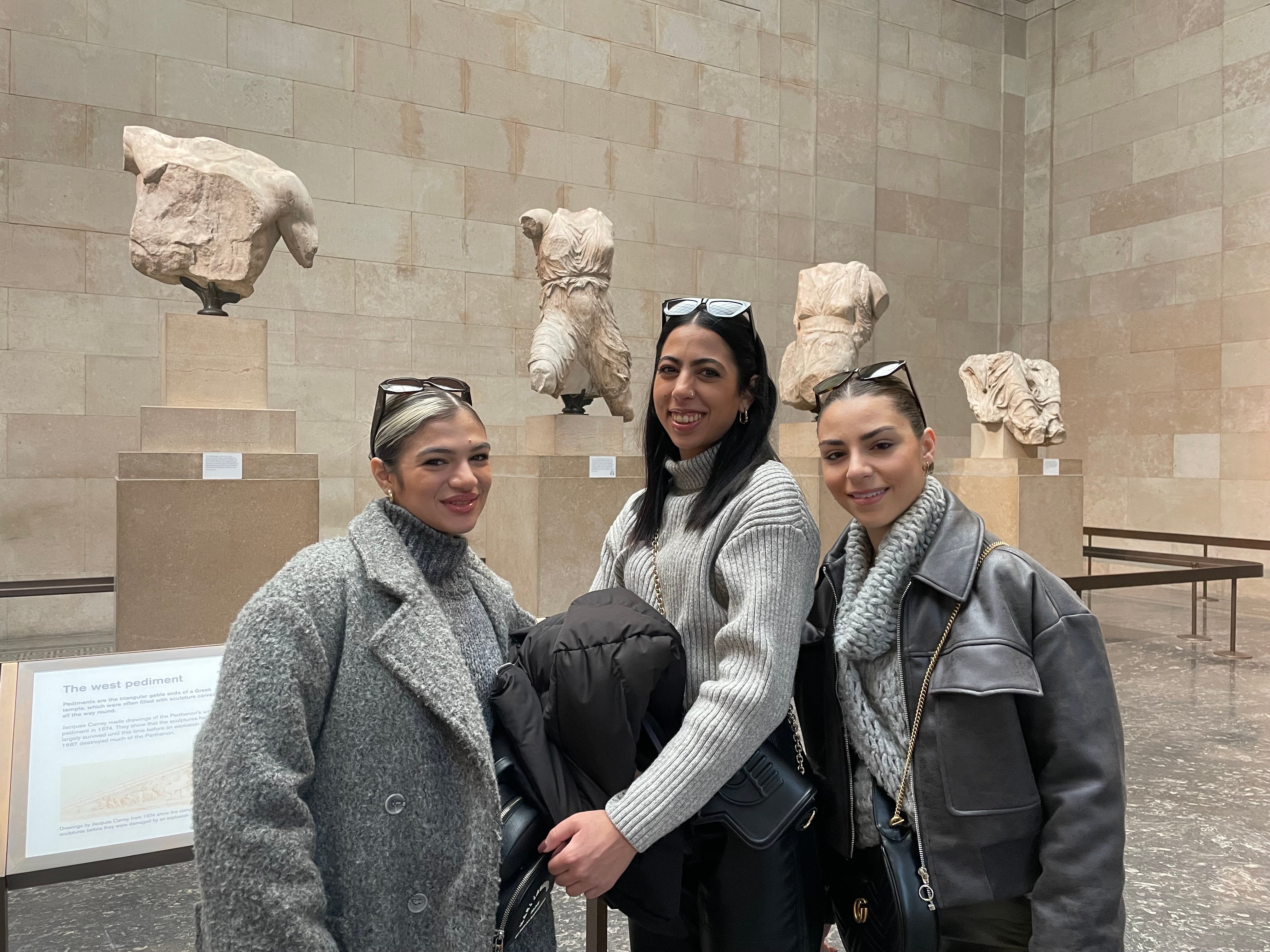
“It means a lot to Greek people. They should definitely go back to where they came from because, to Greek people, it means a lot. It’s our history.” Zoe, 25, from Limassol, Cyprus said.
Her friend, Rafaella, also 25, added: “I definitely think they should go back. It’s a part of Greek culture and therefore should be in Greece. I know that others want them here but in my opinion, I think they should be returned.”
Commenting on the British prime minister’s late cancellation, Stella, also a Greek-Cypriot said: “It’s weird that Sunak cancelled the meeting, we didn’t know he did that. Maybe it was on purpose that it got cancelled? It was very last minute.”
On the other hand, Jullianne Jollie, 58, from the Wirral says she has changed her mind about where the statues should be homed.
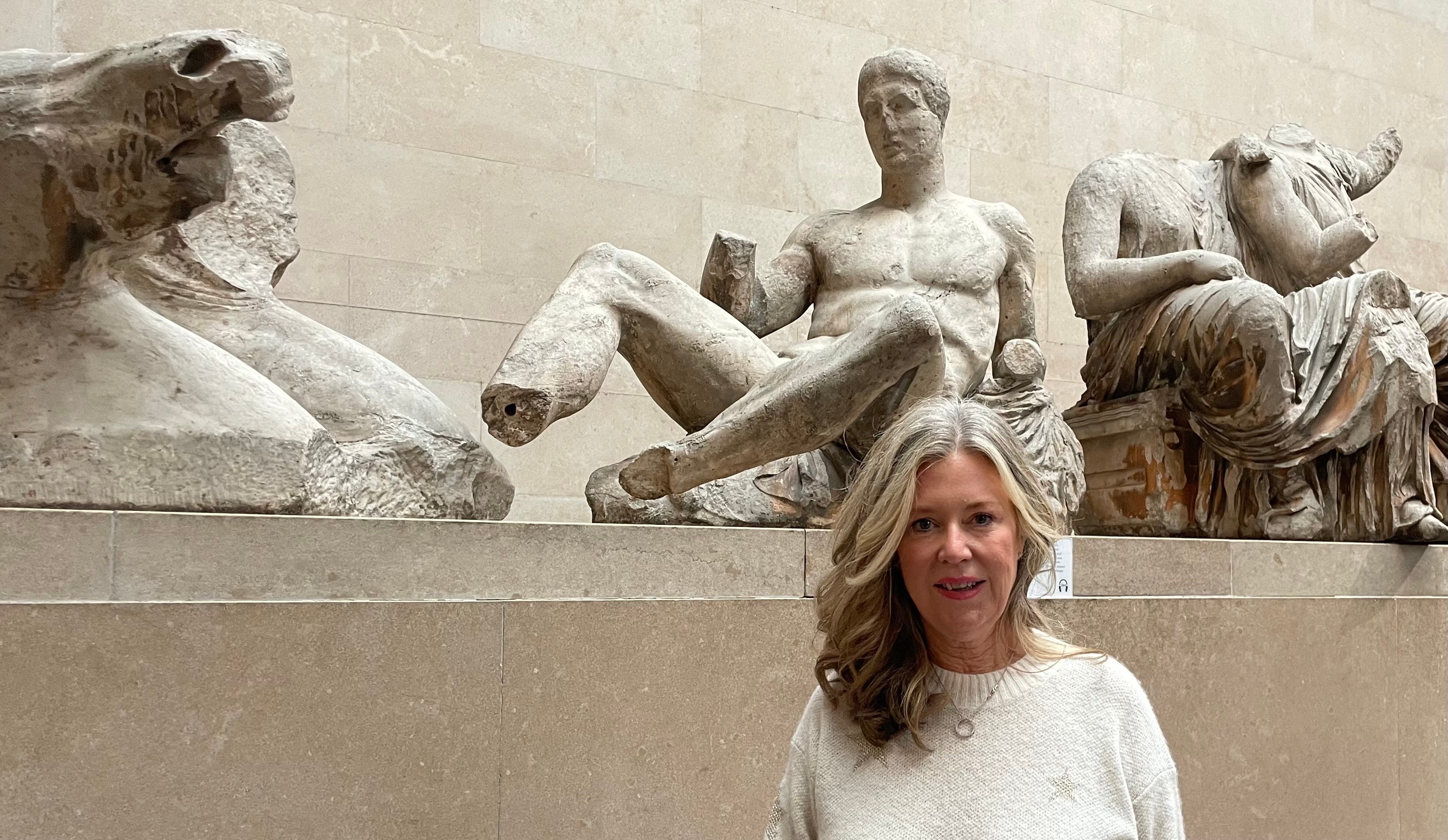
“I’ve gone from thinking they absolutely should go back to thinking as time goes on that they shouldn’t,” the retired education publisher told The Independent.
“If you asked me 18 months ago I would have said yes but, then, when does it stop?
“The whole point of a museum is preservation for the future. I don’t know what the Greeks think about it but to be honest I think it’s good to see some Greek culture in London. Not everyone can go all the way to Greece.”
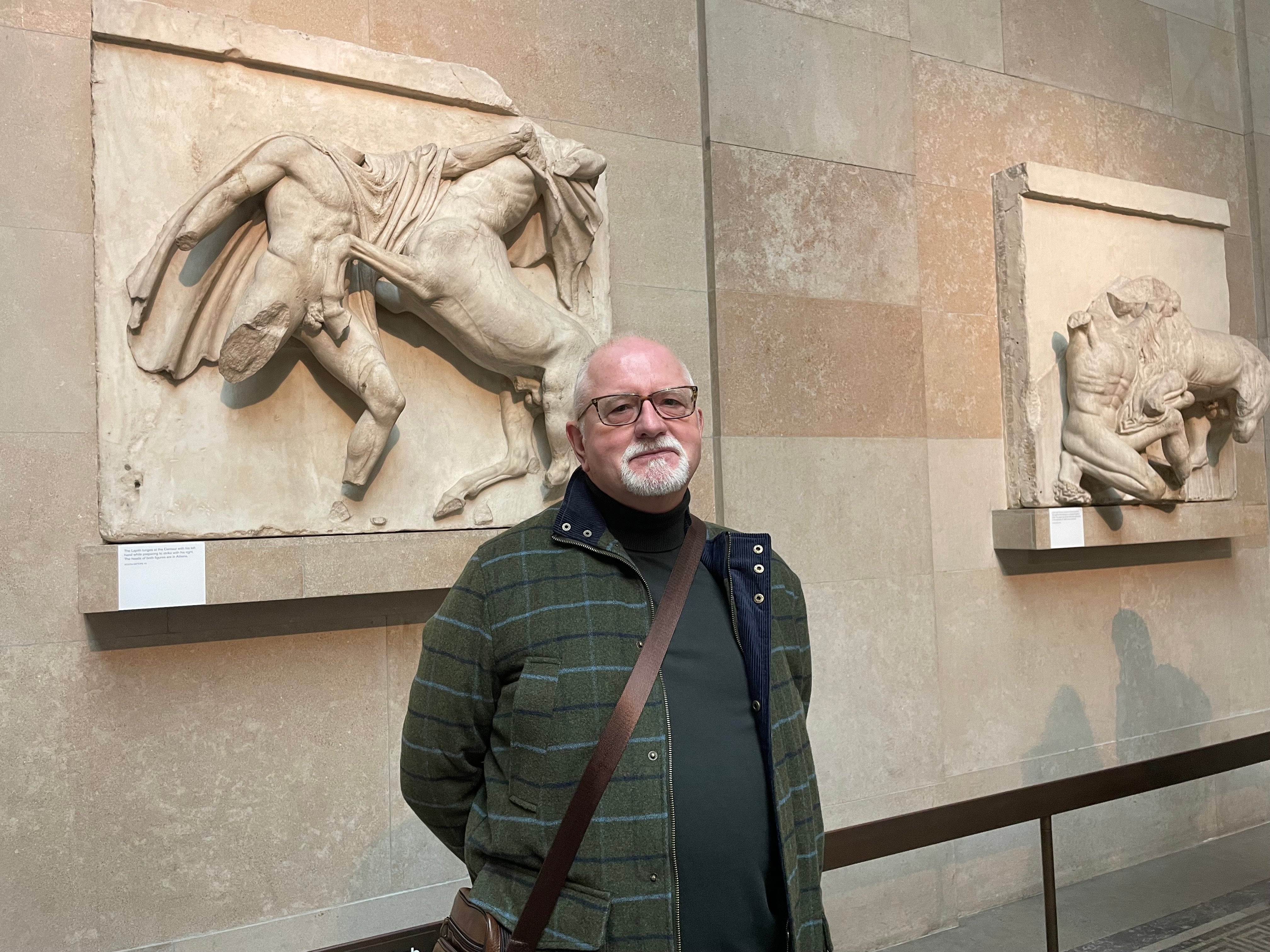
John Ransom, 70, from Edgware, London also has mixed opinions on the debate.
“Something says morally it should go back but, then, you’re setting a precedent for all of the countries to say they want their stuff back. If these things weren’t here we wouldn’t be standing in this museum,” he said.
“The British do have a habit of taking stuff or buying stuff but not for the right price. That seems to be a British tradition, unfortunately.
“It should be challenged and it’s right that it’s challenged. There are pieces over there that are missing their heads and that’s because the heads are in Athens. What sense does that make?
“How would we feel if they came over and started taking Tower Bridge? We wouldn’t like it if our heritage was stolen.”
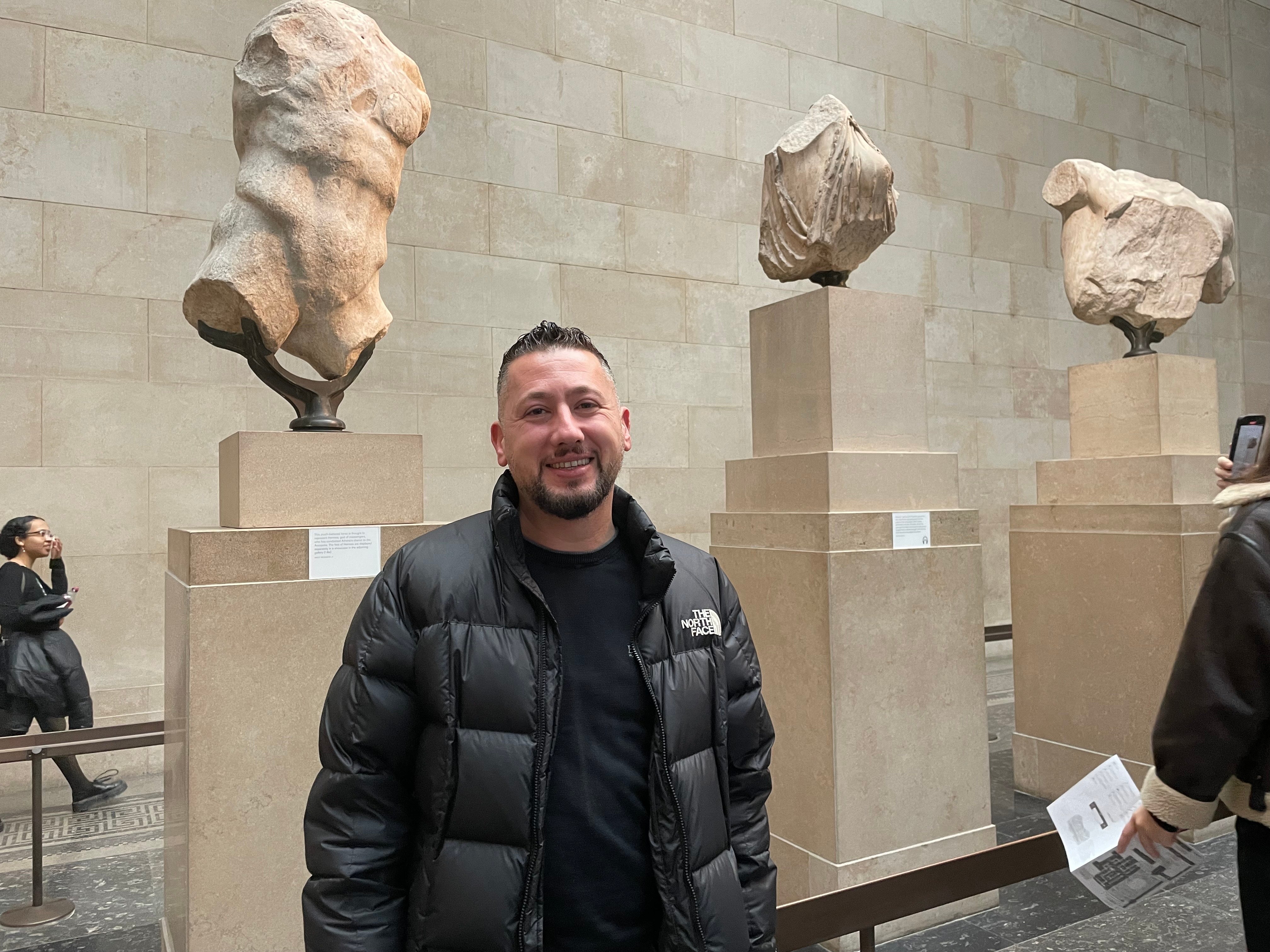
Another visitor to the museum, Ersin Kurnaz, 40, believes the statues must not feel at home in London.
He said: “I went to Athens not long ago and saw the Parthenon. It’s weird having to see half of it there and half of it here.
“I am Turkish but living in Germany. I think it’s similar in the sense that my origin will always be Turkey. When I’m in Turkey it’s a different feeling. It feels like home. I think it must be the same for the sculptures.”
Greek art historian Maria Paloma de Alvarado was also admiring the statues on Tuesday and said the debate was complex.
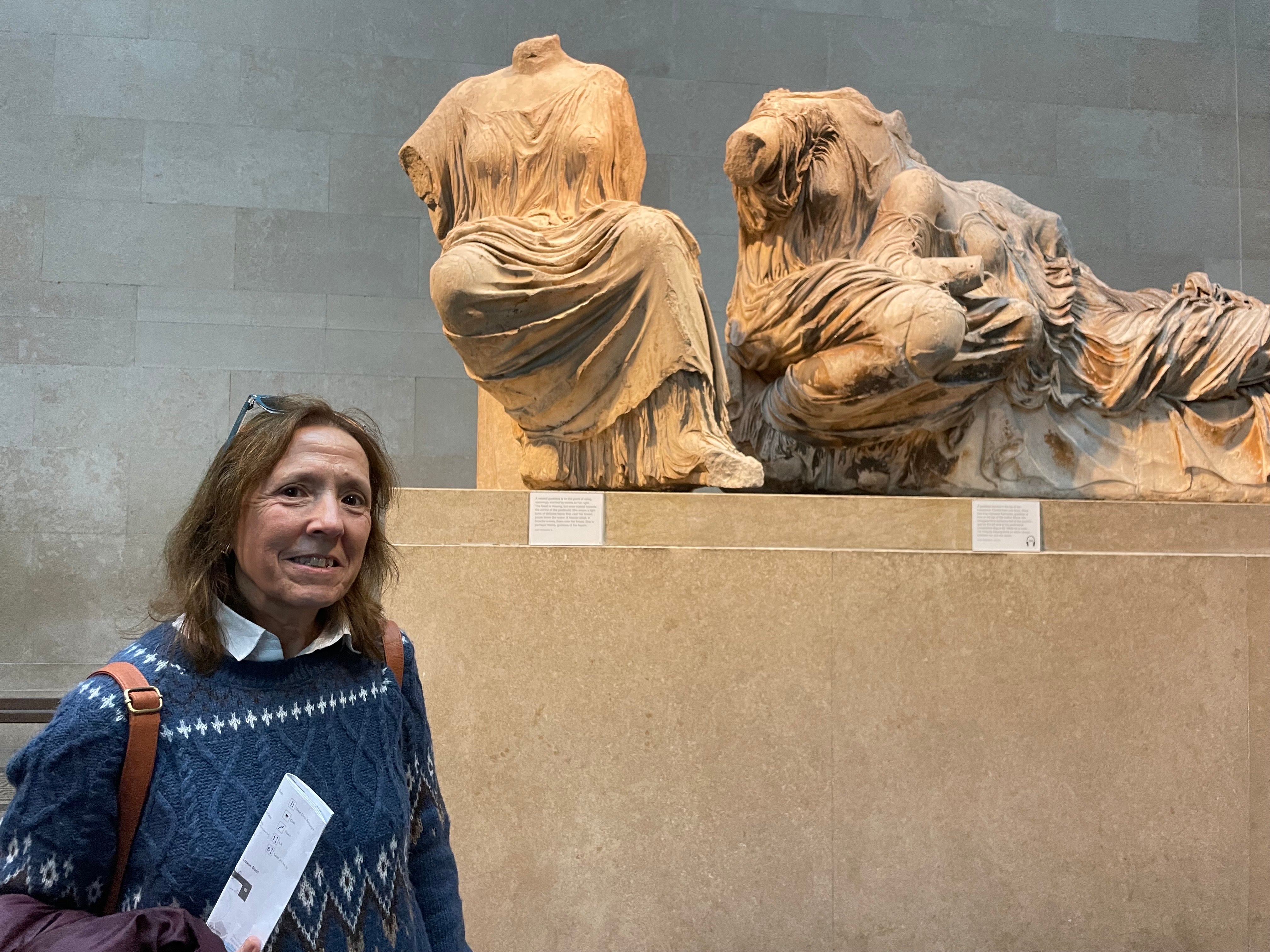
“I believe yes, they should be returned. While they bought it legally it’s part of the Greek identity,” she said.
“There is a discussion here however because if Lord Elgin hadn’t bought all of this it probably all would have disappeared.”
British Museum chairman George Osborne, a former chancellor, has previously said he is exploring ways for the Elgin marbles to be displayed in Greece, with speculation that this could involve a loan deal in which part of the set would be sent to Athens.
But on Monday, the prime minister’s official spokesman stressed Mr Sunak’s support for the law that prevents the marbles from being permanently returned and suggested he would not be in favour of any loan arrangement.
The Greek prime minister Kyriakos Mitsotakis expressed disappointment in Mr Sunak’s last-minute cancellation of their meeting.
In a statement published on X, formerly Twitter, he wrote: “Anyone who believes in the correctness and justice of their positions is never afraid of opposing arguments.”

Join our commenting forum
Join thought-provoking conversations, follow other Independent readers and see their replies
Comments